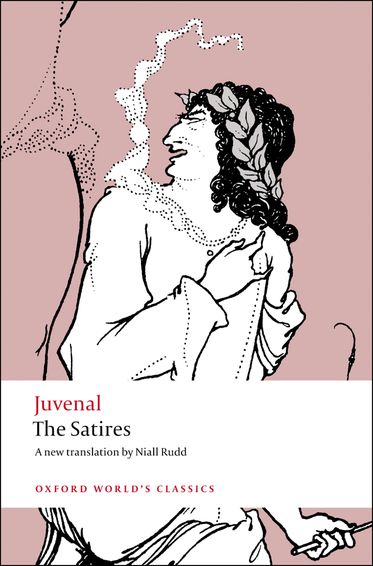The Satires

The Satires
|
ISBN: |
9780199540662 |
|
Binding: |
Paperback |
|
Published: |
12 Jun 2008 |
|
Availability: |
5
|
|
Series: |
$23.95 AUD
$26.99 NZD
Add To CartDescription
Juvenal, writing between AD 110 and 130, was one of the greatest satirists of Imperial Rome. His powerful and witty attacks on the vices, abuses, and follies of the big city have been admired and used by many English writers, including Ben Jonson, Dryden, and most notably, Dr Johnson, who described his writing as `a mixture of gaiety and statelines, of pointed sentences and declamatory grandeur'.
Juvenal has been seen as a stern moralist and, more recently, as an extravagant wit, and is acclaimed for his vivid description of the scenes which aroused his anger. He coined the famous phrase designating people `eager and anxious for two things; bread and races' (panem et circenses').
Niall Rudd's translation reproduces the original style and metrical effect of Juvenal's hexameters. William Barr's Introduction and Notes provide literary and historical background to the sixteen satires.
The eBook offers a mobile experience and convenient access along with functionality tools and navigation features: Find the eBook on VitalSource.
ABOUT THE SERIES
For over 100 years Oxford World's Classics has made available the widest range of literature from around the globe. Each affordable volume reflects Oxford's commitment to scholarship, providing the most accurate text plus a wealth of other valuable features, including expert introductions by leading authorities, helpful notes to clarify the text, up-to-date bibliographies for further study, and much more.
Contents
Contents
Introduction
Translator's Preface
Select Bibliography
List of Dates
THE SATIRES
1 Why Write Satire?
2 Hypocritical Perverts
3 The Evils of the Big City
4 The Emperor's Fish
5 A Tyrannical Host
6 Roman Wives
7 The Plight of Intellectuals
8 True Nobility
9 The Woes of a Gigolo
10 The Futility of Aspirations
11 A Simple Life-style
12 Welcome to a Survivor
13 A Consolation
14 The Influence of Vicious Parents
15 A Case of Cannibalism
16 The Advantages of Army Life
Explanatory Notes
Index of Names
Authors
Juvenal
Translated by Niall Rudd, Professor Emeritus of Latin, University of Bristol
With introduction and notes by William Barr, formerly Senior Lecturer in Latin, University of Liverpool
Reviews
'scholarly and disciplined' -- Sunday Telegraph
'The translation itself goes a long way towards catching J.'s mixture of rhetoric and wit. It is lively and taut ... translation is excellent, not only the best available in English but also good to read, no bad thing as most of its readers will be Latinless.' -- F. Jones, University of Liverpool, The Classical Review, Vol. XLII, 1992